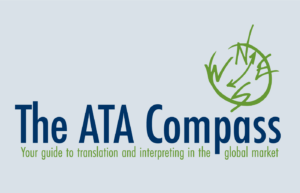Fluent Isn’t Enough: The Value of Trained Educational Interpreters

The importance of hiring professional educational interpreters
Supporting families starts with communication. Trained educational interpreters play a key role in making that possible.
Schools do a lot with limited resources. When language access becomes a barrier in education, bilingual staff members often step in to help. That is incredibly valuable, but when the conversation is complex, critical aspects could get lost in translation. Schools need to ask whether they’re providing the support families truly need.
Bringing in professional interpreters to support communication ensures that families feel heard and respected, allowing staff to focus on the substance of the conversation without worrying that something critical is getting lost in translation.
What a professional interpreter can do for your school
A professional interpreter isn’t just fluent in two languages. They’ve been trained to listen, process, and accurately convey spoken language in real time. They understand how to manage emotional conversations, handle education-specific terminology, and remain neutral even in difficult situations. Trained interpreters for schools also understand education-specific terminology and concepts.
Professional interpreters bring cultural competency to the table, which helps avoid misunderstandings and strengthens the connection between families and schools. Beyond speaking multiple languages, trained educational interpreters are tuned into the cultural context behind what’s being said. This helps them catch things that might not translate directly, such as tone, formality, or culturally sensitive topics.
When a trained educational interpreter is in the room:
- Educators can focus on the conversation itself
- Families can ask questions and feel heard
- All parties get a clear understanding of what was shared and what comes next
Educational interpreting is truly a lot harder than it looks. If you’d like to learn more about what this work involves, check out this insightful story on Educational Interpreting.
Why not bilingual staff?
In many schools, bilingual staff do their best to support communication, especially when professional interpreters aren’t available. They know the community well and often want to help in any way they can. But being bilingual isn’t the same as being trained to interpret.
Even fluent speakers of two languages may:
- Struggle with educational terminology or acronyms
- Summarize instead of interpreting fully
- Avoid direct translation of sensitive topics
- Feel overburdened by interpreting in addition to their regular roles
These team members are an important part of the picture, but in formal meetings and high-stakes conversations, trained professionals really make a difference.
Why trained educational interpreters in schools matter
Hiring trained interpreters is one way schools can make sure language doesn’t become a barrier. When families clearly understand what’s being said and know that what they say will be fully understood, they’re more likely to ask questions, share their thoughts, and feel like equal partners in their child’s education.
When written information is translated carefully, families are more likely to understand it and feel confident about what’s being shared. With professional support, the information is communicated clearly and consistently, and everyone really is “on the same page.”
A trained educational interpreter in the room helps avoid confusion, encourages better collaboration, and shows a genuine commitment to making information accessible to all. Families who speak different languages aren’t left out of important decisions or updates that affect their children.
Here’s what you can improve when your school works with trained professional interpreters:
- Families feel more confident and included
- Communication is clearer and more consistent
- Translated documents are accurate and complete
- Teachers and staff aren’t stretched beyond their roles
- Trust grows between home and school
This isn’t just about meeting a requirement for language access in education. It’s about doing what’s right for students and families.
What’s Next? How do you find and hire a professional interpreter for your school?
To find professionals offering interpretation and translation services in education, I recommend starting with the ATA Directory.
If you need to explain the value of hiring a trained professional interpreter to others on your team, I also recommend sharing this helpful resource: Why Should I Hire a Professional?
Final thoughts on educational interpreters
Families want to be involved in their children’s education. That starts with being able to understand what’s happening, ask questions, and feel like their voice matters. And that’s what makes language access in education so important.
Trained interpreters and translators help make that possible. Interpreters support real-time conversations, and translators make sure written information is clear and accurate. Together, they help schools build trust, communicate more clearly, and make sure all families stay informed and included.
About the Author

Carolin Menéndez is an English-to-Spanish translator and editor with over twenty years of experience in the language industry. She specializes in educational, marketing, and audiovisual content. As an editorial consultant for Scholastic’s Education division, Carolin translates and edits materials designed for teachers and families. She also provides interpretation services in school settings and owns Prose Language Services, a language services boutique based in Southern California.
Language Services Directory
Subscribe to The ATA Compass
Connect with The ATA Compass
Recent Posts
Client Assistance
Can I afford to hire a professional? You can’t afford NOT to. Poor translation and interpreting services can be disastrous for your business. See what’s at stake. Learn More What’s…
Read MoreKnow Your Rights to Language Access
Is English Not Your Primary Language? If you have a limited ability to read, write, speak, or understand English, you are considered to be Limited English Proficient (LEP). As an…
Read MoreThe ATA Compass
Want to reach more customers, grow your business, and improve your bottom line? The ATA Compass publishes articles and provides resources to show you how language professionals can help you…
Read MoreWhat is a Certified Translation?
What are the basics of a certified translation? In the United States, anyone can certify a translation. A translator does not need to be certified in order to provide a…
Read MoreBuying Language Services
Guide to Buying Translation Services Translators help power the global economy, working with businesses, governments, non-profits and individuals. Translators work with the written word. The ATA Guide to Buying Translation…
Read MoreExploring Translation and Interpreting Services
Why Are Language Services Essential in an Internationalized World? In a world where communication knows no bounds, effective language services are paramount. ATA helps you find professional translators and interpreters…
Read More






